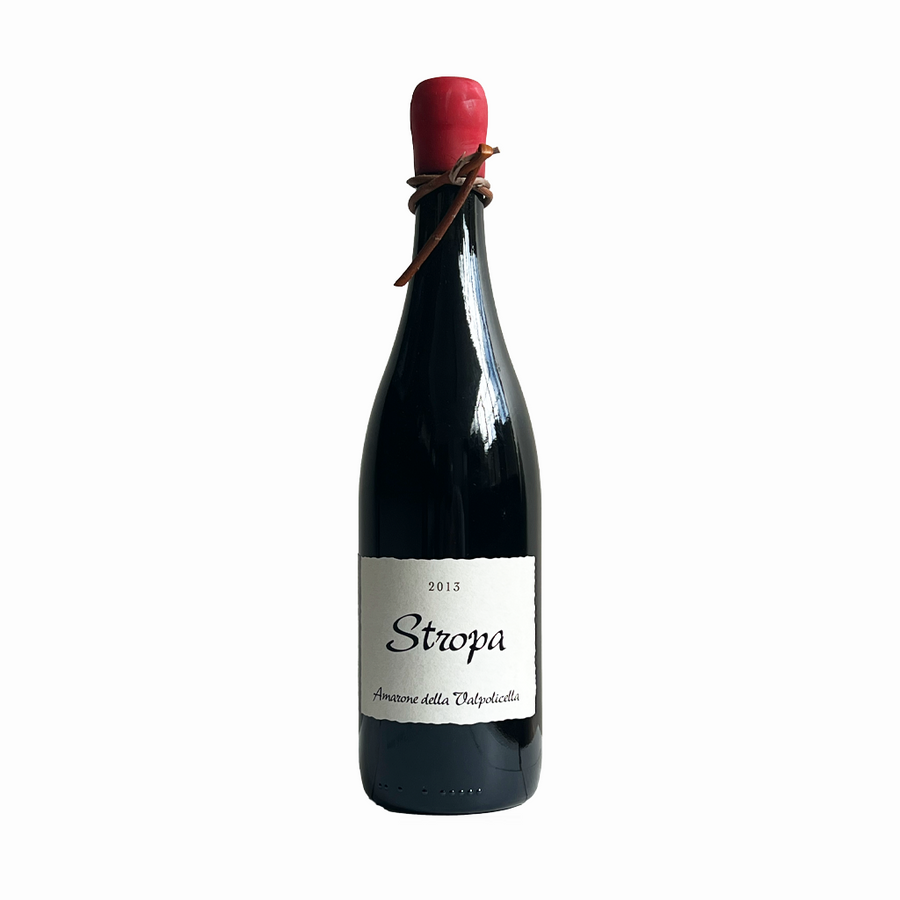A core of dark fruit: chewy plums and bitter cherries, with cacao and mocha coffee. There is intensity and generosity of flavours, yet the balance is incredible. With 11 years of age, the tannins are smooth and integrated. A persistent, velvety and sensuous finish confirm the rare quality of the wine. We think you would be hard-pressed to find a better Amarone in New Zealand.
When Alessandra and Carlo Venturini first discovered Monte dall’Ora it was love at first sight. As children of farmers, they were excited and challenged by the hard work it was going to take to restore these ancient vineyards. Located in Castellroto, in the hills outside of Verona, the vineyards of Monte dall’Ora are planted on a base of limestone soil and form a natural amphitheatre facing southeast towards the city. In fact, portions of their vineyards are planted on ancient drystone terraces called marogna, a design in which large stones form the exterior support structure and smaller stones form a spit of land in the interior. This brittle stone, in which fossils and petrified shells can be found, allows for excellent drainage and deep penetration of the vines.
The Venturinis are firm adherents to biodynamic principles. As such, they encourage the growth of biodiversity by planting herbs such as rosemary and lavender in the summer, whose fragrant blooms are attractive to bees; and sowing cereals in the winter, whose roots move and aerate the soil. In addition, the Alessandra and Carlo have emphasized traditional and native grape varieties wherever possible to give originality and typical wines. We want to restore value to native vines, old varieties forgotten because poor “We try to preserve the knowledge and traditions of our grandparents, who gave value to each plant to recognize and know the qualities as a remedy for commons ills. Also, for the vineyards, there are some helping herbs which we use to prepare tea with flowers and dried leaves (nettle, dandelion, yarrow, sage, peppermint) and that during the summer are spayed on leaves and bunches. For us biodiversity is knowledge and tradition, it is expressed in love for small weeds and no domesticated plants, in the ways they were affectionately called, for the rituals and traditions that has been handed down from generation to generation”.
The Venturinis approach biodynamic agriculture with becoming modesty and curiosity, their daily work governed by the nature’s rhythms. They adopt measures in the vineyard to help preserve the fertility of the land and the developments of micro-organisms, which means that the roots of plants find useful materials in the soil to resist disease and parasitic attack. “Knowledge and respect for natural cycles help us to find the balance that give us a state of well-being and that will benefit our whole microcosm (soil-vine-wine-man)”.
The grapes are sourced from various sites with an average altitude of 300 metres and dried in a south-facing breeze-cooled drying loft in small wooden crates, eventually pressed towards the end of February. The cold winter temperatures, the long period of fermentation on the skins (over a month) and the use of wood during the ageing process encourage the development of the wine’s unique aromas.





